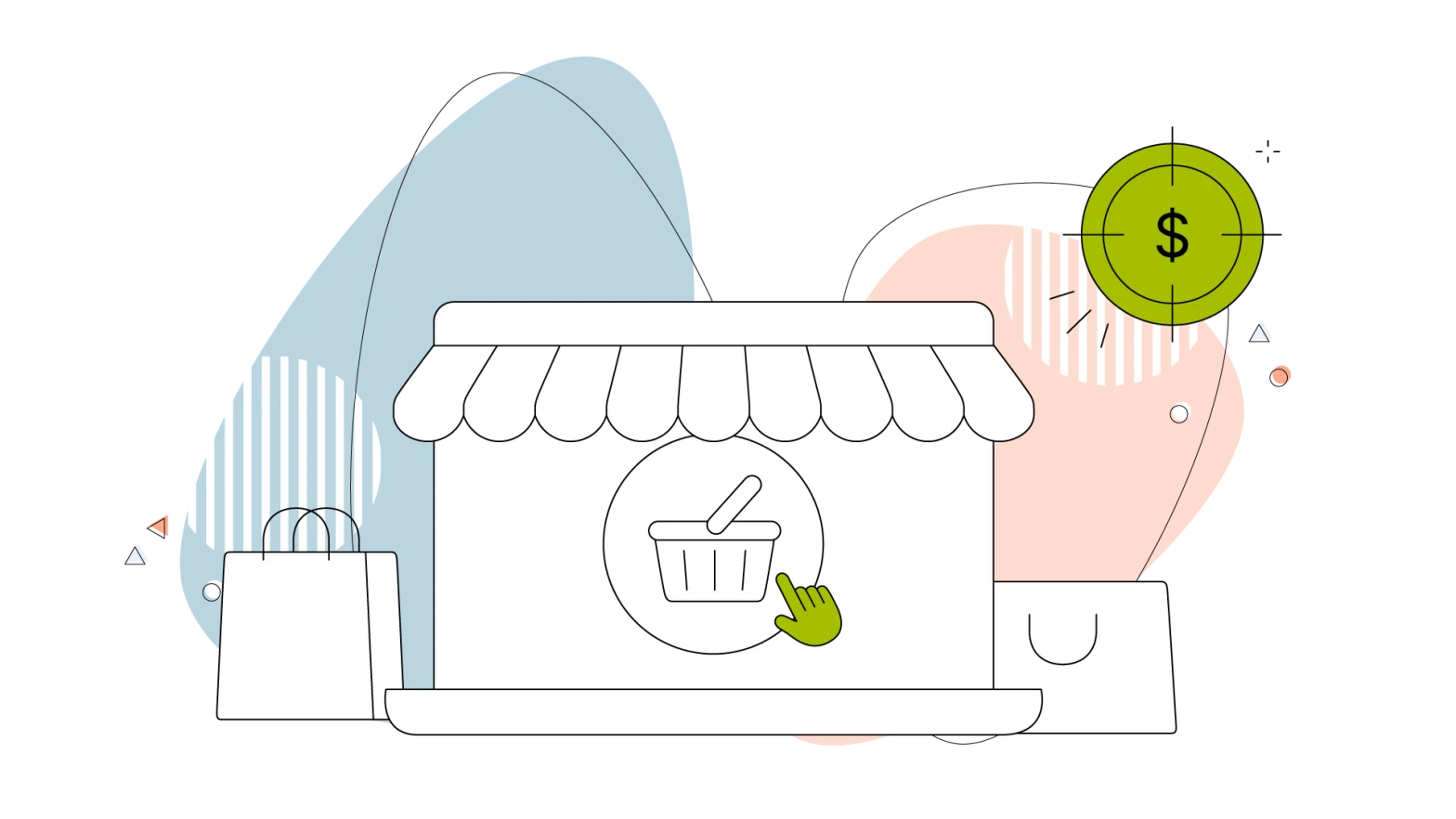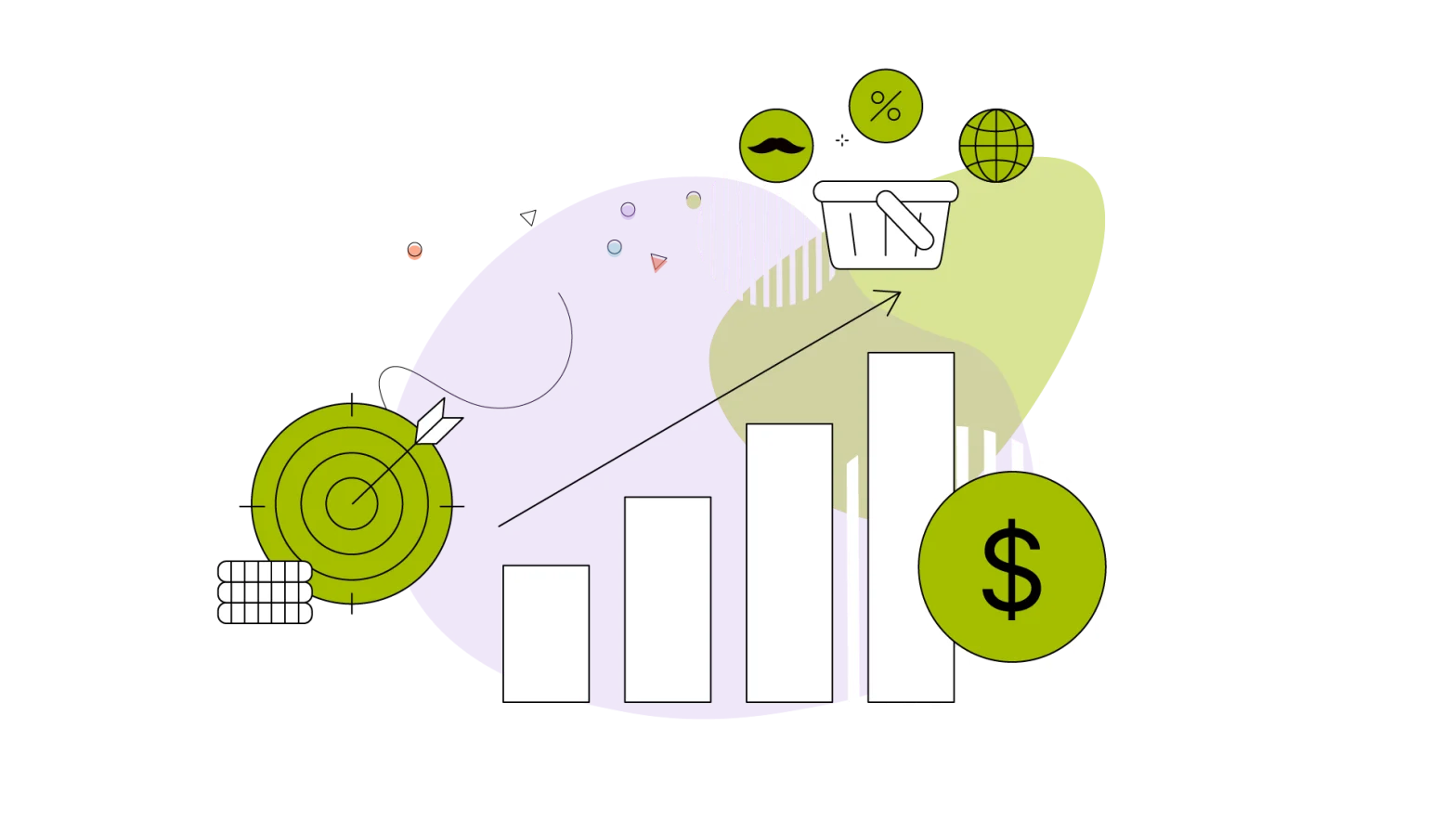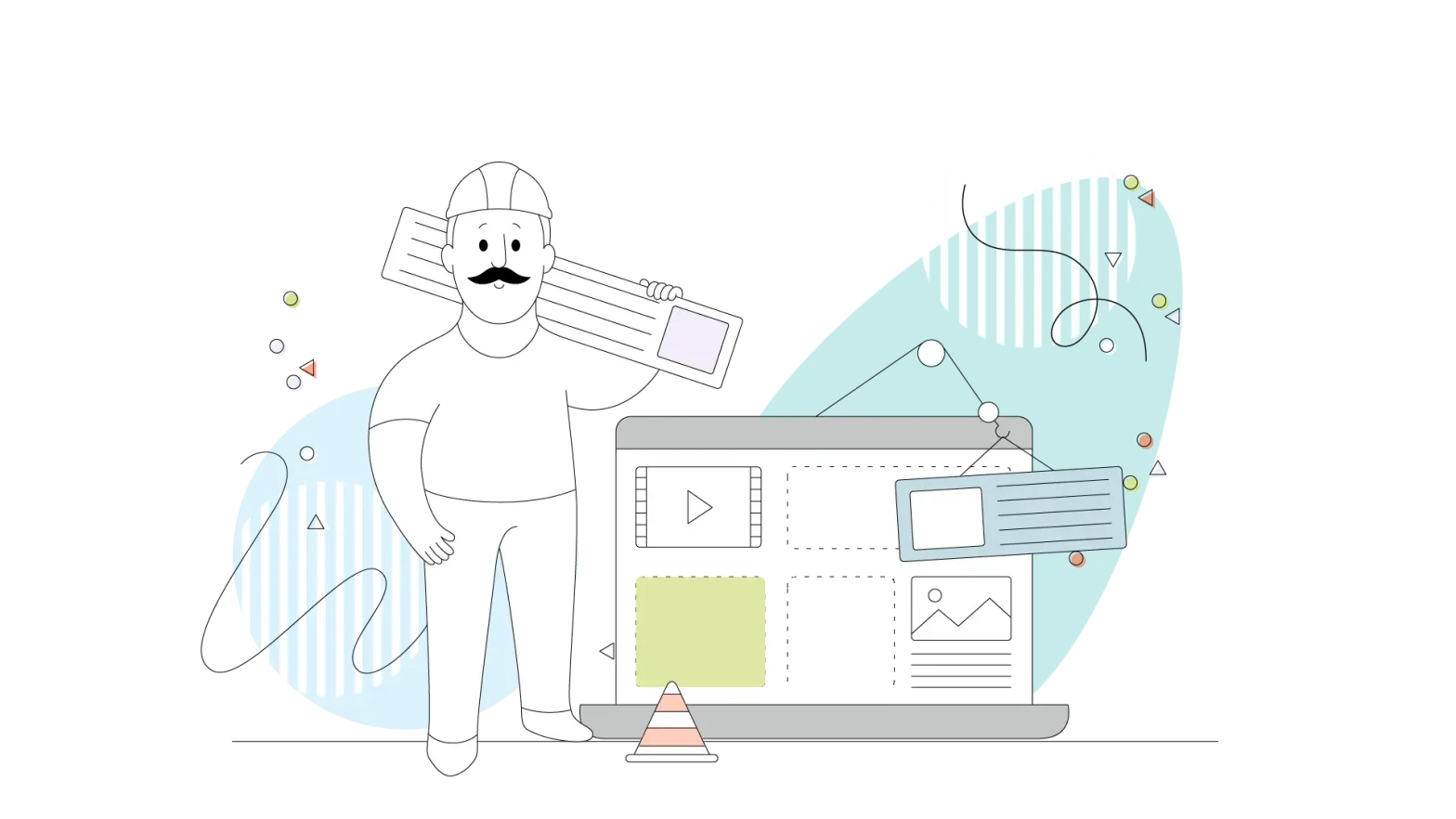Starting your own online business and becoming your own manager seems magical! But have you ever felt you’re getting closer to your target?
The allure of online entrepreneurship is stronger now than ever, offering incredible flexibility, global reach, and the potential to turn your passion into a thriving business. It feels like the perfect modern venture, and for many, it absolutely is.
Like any business venture, it requires careful planning, especially regarding finances and potential startup expenses. Overenthusiasm can easily lead you away from hitting your targets accurately.
That’s exactly what this article is designed to do. We’ll break down the common business expenses you’ll encounter when you start an online company, from the absolute essentials to the costs that help you grow.
- Core Investments: The Non-Negotiables for Launching Your Online Business
- Additional Costs: Beyond the Basics
- Potential Hidden or Ongoing Costs
- Smart Budgeting Tips: Making the Most of Your Investment
- Why Web Hosting Matters: The Foundation of Your Online Business

Core Investments: The Non-Negotiables for Launching Your Online Business
Before you can make your first sale or welcome your first website visitor, knowing your business startup costs is something we mustn’t ignore. Some of these core expenses stay the same, whether you wish to create a website for a brand-new online business or an online boutique.
Think of these as the essential costs of starting your own online business—the non-negotiables that form the bedrock of your digital venture.
Cost precalculation is an important and unskippable step you must undertake before launching your own online business. Look for every detail and potential expense that might arise, as we have in this section. We’ll start with the must-haves before discussing the additional upfront costs a new business might incur.
Business Licenses & Permits
First up, the legal necessities, including obtaining a business license, if required. Depending on where you live and the structure of your business ( sole proprietorship, LLC, corporation), you’ll likely need certain licenses or permits to operate legally. These requirements vary significantly by city, state, country, and industry.
- Actionable advice: Don’t skip this step! Check directly with your local city or county clerk’s office, your state’s business agency, and relevant federal resources (like the Small Business Administration in the US) to understand your specific obligations.
- Cost: The cost to start an online business can range from under $50 for simple registrations to several hundred dollars or more for specific permits or incorporating, so research is key.
Your Digital Address: Picking The Domain Name
Every online business needs a home base, and your domain name (for example YourAwesomeBusiness.com) is its unique digital address, which is non-negotiable for your own website. It’s how customers find you online, and a crucial part of your brand identity, credibility, and memorability. Choosing a name that’s relevant, easy to remember, and professional is vital.
- Cost: Thankfully, securing a domain name is one of the most affordable startup costs, typically involving a small annual registration fee.
Securing the perfect domain name is like choosing the address for your physical store—it needs to be right, easy to find, and reflect your brand. It should also be displayed on your online store’s website. It’s often the very first step to building your online presence and claiming your unique spot on the web.
Your Online Real Estate: Web Hosting
If your domain name is your business address, then web hosting is the actual plot of digital land where your website’s files, images, and content live.
It’s the service that makes your website accessible to visitors around the clock, from anywhere in the world. For most websites (especially those built on platforms like WordPress), reliable web hosting is absolutely essential.
Types (simplified): You’ll encounter different hosting options:
- Web hosting: Like renting an apartment in a building, you share resources with others. It’s very affordable and great for new websites expecting moderate traffic. Web hosting costs are usually fairly affordable and shouldn’t be heavy on your business startup costs.
- VPS (Virtual Private Server) hosting: Like owning a flat, you still share the building but have more dedicated resources and control. Ideal for growing businesses with increasing traffic. Learn more by reading this quick guide to choosing your VPS web hosting.
Choosing the right ‘land’ for your website is crucial. You need a reliable foundation that’s secure, fast, and capable of handling your visitors—slow or inaccessible sites lose customers and trust fast. Shaky hosting leads to a poor customer experience and lost online sales.
That’s where a dependable provider like HostPapa comes in. We offer a range of hosting plans built specifically for performance, rock-solid security, and easy scalability, ensuring your online business has a stable and welcoming home from day one. Plus, with our expert 24/7 support, you’re never alone on your entrepreneurial journey.
Building Your eCommerce Store: Website Builder/Platform
With your address secured and your land rented, you need to actually build your online presence using eCommerce platforms or other methods. This involves choosing a platform or method to create your website:
- WordPress.org (Self-hosted): Immensely popular and powerful, offering maximum flexibility, endless customization through themes and plugins, and full control over your site. It does have a steeper learning curve and requires you to have your own web hosting (like the plans offered by HostPapa).
- All-in-one website builders: Platforms like WooCommerce (for eCommerce on WordPress), Shopify, or even HostPapa’s own easy-to-use Website Builder offer user-friendly, often drag-and-drop interfaces. They typically bundle hosting, simplifying setup but potentially offering less flexibility and incurring ongoing platform fees.
- Custom development: Hiring developers to build a site from scratch. This offers tailored solutions but comes at a significantly higher cost, usually reserved for businesses with very specific and complex needs.
- Guidance: Your choice here depends heavily on your budget, technical comfort level, required features (like robust e-commerce), and long-term scalability plans. Consider what tools will best empower you to manage and grow your online presence effectively.
Core Investment Estimates Table
| Investment Item | Typical Cost Range | Notes & Considerations |
| Business Licenses & Permits | $10 – $500+ (One-time or annual) | Highly dependent on your location (city/state/country) and business structure/type (Sole Proprietor, LLC, Corporation). Includes registration, potential permits. LLCs often have higher initial fees and annual renewals. Check local government resources. |
| Domain Name | $10 – $25 / year | For standard extensions like .com, .net, .org. First-year promotional pricing might be lower ($1-$10), but renewal rates are key. Premium or specialty domains can cost significantly more. Visit HostPapa’s Domains page for more. |
| Web Hosting | ||
| Web Hosting | $50 – $180 / year | Best for beginners and low-traffic sites. Often includes introductory offers; renewal prices may be higher. Suitable for basic WordPress sites. |
| VPS Hosting | $180 – $1,200+ / year | For growing sites needing more resources and control. Managed vs. unmanaged options have variable costs and resource allocation. |
| Included with Builder | (See Website Platform Below) | Many all-in-one builders bundle hosting into their monthly fee. |
| Website Platform/Builder | ||
| WordPress.org | Starting from $0 (Software) + Hosting + Domain + Extras | Software is free. “Fixed” costs are domain + hosting (see above) + optional premium themes and plugins. |
| All-in-One Builders | $190 – $500+ / year | Covers platforms like Wix, Squarespace, and Shopify (basic plans). Higher tiers exist, but very costly compared to HostPapa’s Website Builder. Often includes hosting and sometimes a free domain for the first year. eCommerce plans usually start around $300-$350/year. |
| Custom Development | $3,000 – $15,000+ (One-time Project) | For highly customized websites built by freelancers or agencies. Significant upfront investment, usually for established or complex needs. HostPapa’s Custom Website Design, on the other hand, offers a tailored design and highly competitive pricing. |
Important Considerations
- Promotional vs. renewal pricing: Be aware that many services (especially domains and hosting) offer low introductory prices that increase significantly upon renewal. Factor renewal costs into your long-term budget.
- Bundled services: Some providers, like HostPapa, may offer bundles including domain registration with hosting plans, which can provide initial savings.
- Scalability: Your needs may change as your business grows. Choose platforms and hosting plans that allow you to scale up (or down) without excessive cost or difficulty.

Additional Costs: Beyond the Basics
Once the foundation of your domain, hosting, and basic website structure is laid, several other ongoing expenses contribute to building a fully functional, professional, and growing online business. While not all might be needed on day one, budgeting for them is essential for long-term success.
1. eCommerce Platform Fees
If your own eCommerce business involves selling goods or services online, you’ll need specific tools to handle it.
- Explain: This involves platforms or plugins that allow you to list products, manage inventory, calculate shipping, and securely process customer orders. For WordPress users, WooCommerce is a popular free plugin, but you’ll likely need paid extensions for specific features, which is more than fine at the beginning.
- Cost: Expect potential monthly platform fees (approximately $29 – $300+), transaction fees (often around 0.5% – 3% per sale, on top of payment processing fees), and costs for necessary add-ons or premium plugins ($50 – $200+/year is expected for specific functionalities).
2. Marketing & Advertising
Having a website isn’t enough; people need to find it! Marketing costs aren’t just an expense but a crucial investment for driving traffic, generating leads, and making sales. This isn’t an optional online business cost if you aim for growth.
Some Examples
- Search Engine Optimization (SEO): Optimizing your site to rank higher in search results (can be DIY or require hiring experts/tools).
- Paid advertising: Running ads on platforms like Google Ads or social media (Facebook, Instagram, LinkedIn). Costs can range from $1 – $10+ per click on Google or $0.50 – $5+ per click on social media.
- Content marketing: Creating valuable blog posts, videos, or guides to attract and engage your audience.
- Email marketing: Building an email list and sending newsletters or promotions (platforms often have free tiers, with paid plans starting around $10 – $50/month).
Our advice: Start small! Focus your marketing efforts on reaching your specific target audience. Track your results meticulously to see what works, and scale your budget and efforts accordingly. Even a modest initial budget ($100 – $500/month) for targeted ads or essential tools can make a difference.
3. Website Design/Theme
How your website looks and feels directly impacts user trust, credibility, and conversion rates, making it worth the upfront costs for a professional, mobile-responsive, and easy-to-navigate design.
Options & Costs
- Free themes: Available for platforms like WordPress. Good starting point, but often have limited customization, fewer features, and less support.
- Premium themes: Typically a one-time cost ($40 – $100+) or annual subscription. Offer more design flexibility, features, regular updates, and customer support. A worthwhile investment for a more professional look.
- Custom design: Hiring a web designer or agency. Offers a unique, tailored result but represents a higher investment (ranging from $1,000 – $10,000+, depending on complexity).
4. Branding Elements (Logo, Colours, Fonts)
Your logo, colour scheme, and fonts define your brand’s visual identity, making it recognizable and consistent across all platforms, and reflecting your unique business idea.
- DIY tools: Many online logo makers and branding tools are available (Canva, etc.), some free or low-cost. Quality can vary, and uniqueness might be limited.
- Freelance designers: Hiring a freelancer (via platforms like Upwork or Fiverr) offers a custom result at a moderate cost (typically $100 – $1,000+ for a logo and basic style guide).
- Branding agencies: Provide a comprehensive branding strategy and design. This is a higher investment (starting from $2,000 – $5,000+).
5. Stock Photos & Graphics
High-quality images and videos make your website and marketing materials look professional and engaging, and should be considered part of your startup costs. Poor visuals can detract from your brand before even reaching the value proposition.
6. Product Costs (For Physical Product Businesses)
If you’re selling physical goods, this is often a significant part of your startup costs to start an online business.
Costs include:
- Sourcing or manufacturing the products.
- Buying products upfront will increase inventory costs.
- Warehousing or storage space.
- Packaging materials (boxes, tape, labels).
- Shipping costs to customers.
Alternatively, consider a dropshipping model where a third-party supplier holds the inventory and ships directly to your customer. This significantly lowers your upfront inventory investment, though profit margins per item might be lower.
7. Getting Paid: Payment Processing Fees
To accept online payments, you can use payment gateways such as Stripe, PayPal, Square, or others that are integrated into your eCommerce platform. These providers charge transaction fees for each processed payment; however, there may be different options available in your region.
These services charge a fee for each transaction processed. This is typically a percentage of the transaction amount plus a small fixed fee (2.9% + $0.30 is common).
Fees directly affect your profit margins, so they must be factored into your product pricing and overall financial planning.

Potential Hidden or Ongoing Costs
Budgeting for your online venture doesn’t stop once your website is live. To accurately forecast your finances and avoid surprises, it’s crucial to account for unexpected costs and recurring or easily overlooked expenses. Keep these ongoing elements of your online business cost in mind:
Software Subscriptions
Modern businesses rely a lot on software, and many essential tools operate on monthly or annual subscription models, contributing to ongoing expenses. Common examples include:
- Accounting software: Tools like QuickBooks or FreshBooks are vital for tracking finances (approx. $15 – $50+/month).
- Email marketing platforms: Services like Mailchimp or Constant Contact often have free starting tiers, but costs increase with the list size (approximately $ 10 – $50+/month and up).
- Project management tools: Platforms like Asana or Trello help organize tasks, especially with teams (paid plans often start around $10 – $25/month per user).
- Other possibilities: CRM software, social media schedulers, premium plugins, analytics tools.
Ongoing Website Maintenance
Your website isn’t a “set it and forget it” asset unless you opt for HostPapa’s Managed WordPress Hosting plan, which includes a hands-off approach in its total cost.
In other cases, regular maintenance is essential for security, performance, and functionality. This includes:
- Updating your core platform (like WordPress), themes, and plugins.
- Performing regular backups of your site data.
- Running security scans and monitoring for threats.
- Checking site speed and performance.
While maintenance can be time-consuming or budget-intensive if outsourced, partnering with a reliable web host is the cornerstone of a business.
Quality providers like HostPapa incorporate robust security features, often include automated backups, and provide expert support, helping to minimize risks and alleviate some of the burden associated with ongoing site upkeep.
Customer Service Tools
As you gain customers, dedicated tools might become necessary for efficient business operations. Helpdesk software, such as Zendesk or Help Scout, can help manage inquiries efficiently, often at a reasonable price per month and user. This expense is separate from your web hosting costs.
Potential Hiring Costs
As your business scales, you might need to outsource tasks or hire help, such as a virtual assistant, content writer, a dedicated business lawyer or bookkeeper, contributing to staffing costs. Factor these potential future costs into your growth projections.

Smart Budgeting Tips: Making the Most of Your Investment
Understanding the potential costs is the first step; managing them effectively is the next. Launching a successful business often means being smart with your initial funds. Here are some tips for managing the cost of starting an online business:
- Prioritize ruthlessly: Distinguish between essential “needs” (like domain, reliable hosting, basic website functionality) and “nice-to-haves” (like advanced software features or custom design initially). Focus your budget on the core elements required to launch and operate legally and effectively.
- Leverage free tools (or low-cost ones): Many fantastic resources are available for free or offer “freemium” plans, helping you save money. Utilize free tiers of email marketing software, project management tools, design platforms (like Canva), and free website themes or plugins when you start an online business. Only upgrade when the need genuinely justifies the cost.
- Track every penny: Implement a system for tracking all income and actual expenses from day one, even if it’s just a detailed spreadsheet initially. This helps you understand your cash flow, identify areas where you can save, and make informed financial decisions. Accounting software becomes invaluable as you grow.
- Scale expenses intelligently: Your spending should ideally grow with your revenue. Don’t invest heavily in expensive tools or large advertising campaigns before you have proof of concept and income generation. Start lean and strategically increase investment in areas (like marketing or better tools) that demonstrably contribute to growth.

Why Web Hosting Matters: The Foundation of Your Online Business
Choosing where your website “lives” online might seem like a technical detail, but your web hosting cost is the bedrock of your digital presence. It directly impacts your site’s performance, security, and reliability—factors crucial for success when you start an online business.
Think about it:
- Performance & speed: Slow-loading websites frustrate visitors, leading to high bounce rates (people leaving immediately) and lost sales. Search engines like Google also penalize slow sites, hurting your visibility. Good hosting ensures your site loads quickly, providing a positive user experience and boosting your SEO potential.
- Security: In an age of increasing cyber threats, protecting your website and customer data is paramount. A security breach can damage your reputation and lead to significant financial loss. Reliable hosting providers implement robust security measures to safeguard your site.
- Uptime & reliability: If your website goes down, you’re essentially closed for business online. Consistent uptime ensures your site is always accessible to potential customers.
This is where HostPapa provides a solid foundation for your online venture. We understand the needs of growing businesses and offer hosting solutions built for success, focusing on:
- 99.9% uptime guarantee: We stand behind our infrastructure, ensuring your website is consistently available to your visitors.
- Robust security features: From firewalls and malware scanning to free Let’s Encrypt SSL certificates, we prioritize protecting your online assets.
- Scalable plans: Start with what you need and easily upgrade your resources as your traffic and business grow, ensuring you only pay for what you use without performance bottlenecks.
- Award-winning 24/7 support: Our expert PapaSquad support team is available around the clock via chat, phone, or email to help with any questions or issues. You’re never alone!

Conclusion: Investing Wisely in Your Online Venture
Launching your dream online business is an exciting prospect! As we’ve explored, understanding the potential online business costs, from essential foundations like your domain and hosting, to operational costs like marketing and software, and potential growth investments, including startup funding, is key to planning effectively.
Knowing how much it does cost to start an online business allows you to create a realistic budget, prioritize spending, and make informed decisions. Remember, many initial costs are investments in your future success. Choosing quality, reliable services, especially for foundational elements like web hosting, can save you time, money, and headaches in the long run.
Ready to lay the groundwork for your online success? Take the first step with a dependable platform.
FREQUENTLY ASKED QUESTIONS
Is $10,000 enough to start a small online business?
Yes, $10,000 can be enough to start many types of small online businesses, but it largely depends on your specific business model and initial needs.
This figure will cover the initial investment, like the domain name, website, and business registration (package startup costs). It will also likely cover website development (potentially using affordable builders or themes), basic software subscriptions, initial marketing efforts, and any necessary supplies or minimal inventory.
How much does it cost to start an internet business?
The cost to start an internet business varies significantly based on factors like your business type, scale, technology needs, and marketing strategy. Understanding the typical costs involved can help you set a realistic budget.
You could potentially launch a very basic service-based online business or blog for a few hundred dollars, covering just the essentials like domain registration ($10 – $25/year) and affordable shared web hosting ($30 – $180/year).
For larger businesses, greater venture capital will be necessary and is likely to exceed the $10,000 mark mentioned above.
Do I need an LLC to start an online business? Which businesses require it?
No, you are not legally required to form a Limited Liability Company (LLC) to start an online business. By default, if you start conducting business activities alone, you are considered a sole proprietor.
What an LLC provides: The primary benefit of forming an LLC is limited liability protection. It creates a legal separation between your personal assets (like your house, car, and personal savings) and your business debts and liabilities. If your business faces a lawsuit or incurs debt that it cannot pay, your personal assets are generally protected.
No specific type of online business is universally required by law to be an LLC from the outset just because it’s online. However, certain regulated industries (like financial services, some professional services like law or accounting) might have specific licensing or structural requirements that could necessitate or favour forming an LLC or other formal entity.




